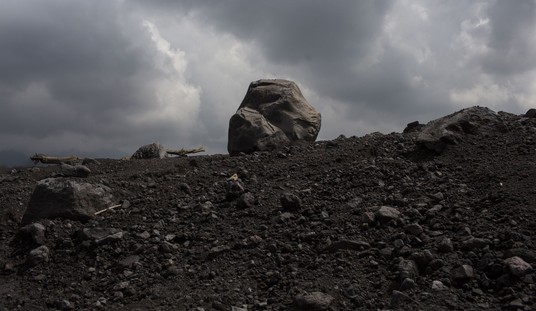Yemen became the latest Arab government in the winter uprisings to choose to use force rather than negotiation with political opponents. Firing from rooftops into a demonstration with over 10,000 protesters, security forces killed 40 people, including three children, and wounded a hundred more:
Visit msnbc.com for breaking news, world news, and news about the economy
Barack Obama condemned the attack and called on the Yemeni government of President Ali Abdullah Saleh, a nominal US ally, to protect demonstrators and the political opposition:
President Barack Obama on Friday condemned the shooting attack in Yemen that killed dozens of protesters, and urged authorities there to protect peaceful demonstrators and said those responsible must be held accountable.
“It is more important than ever for all sides to participate in an open and transparent process that addresses the legitimate concerns of the Yemeni people, and provides a peaceful, orderly and democratic path to a stronger and more prosperous nation,” he said in a written statement.
Saleh responded by declaring a national emergency, giving security forces even more latitude to take action:
Hours after the crackdown — the largest yet in the popular uprising — President Ali Abdullah Saleh declared a nationwide state of emergency, formally giving the security forces a freer hand to confront the demonstrators. There was no word on how long the emergency laws would remain in place.
In response to the assault, Yemen’s opposition said there was no longer any way to reach a mutual understanding with the government.
It’s the second such crackdown this week by governments allied to the US. Earlier, the monarchy in Bahrain also declared a national emergency, invited the Saudis to send 1,000 troops to Manama, and then demolished the monument around which opposition had rallied for the past month:
Bahrain’s army has demolished the 300 foot (90-meter) pearl monument that had become a symbol of a monthlong Shiite uprising against the Sunni monarchy.
The six white curved beams topped with a huge pearl had risen above the square in the capital, Manama, that was the center of the anti-government protests in the Gulf nation.
Friday’s destruction of the monument underlines the resolve of the Sunni regime to root out any dissent in the kingdom, now under emergency rule. The monument long served as a reminder of Bahrain’s history as a pearl diving center but more recently became associated with the protests that have roiled the nation. …
Amateur video footage of security forces shooting and beating protesters has spread across the internet and fueled fury in predominantly Shiite Iraq and in Iran, where a senior cleric on Friday urged Bahraini protesters to keep going until victory or death.
“Brothers and sisters” in Bahrain should “resist against the enemy until you die or win,” Ayatollah Ahmad Jannati told worshippers at Friday prayers at Tehran University, a nationally televised forum seen as expressing the views of Iran’s ruling Shiite clergy.
Obama had earlier cited violence against unarmed citizens as a reason for the non-legitimacy of Libya’s dictatorship. Afterward, though, the US and its allies hesitated for weeks to apply any serious consequences along with the demand that Moammar Gaddafi step down, at least until late last night. Those countries allied to the US and the EU have apparently taken the appropriate lesson from the example, which is that the West will avoid intervention to defend dissent even when demonstrators are violently suppressed.
To some extent, that lesson was unavoidable anyway. The alternate outcomes in Bahrain and Yemen would almost certainly be disastrous for the US, particularly in Yemen, where al-Qaeda has built a dangerous operational network. The same was true to a lesser extent in Egypt, where Obama quickly demanded Hosni Mubarak’s ouster and then had to settle for a retirement of sorts. In Libya, there were fewer scenarios worse than Gaddafi, while in Iran — where Obama barely even gave rhetorical support to protesters in 2009 — we’re already in the worst-case scenario.
After botching Egypt, Obama would be wise not to push the relatively friendly governments out in Manama and Sana’a, but either way, violent suppression is what the West implicitly, if accidentally, endorsed through its quick talk and slow action over the past two months.








Join the conversation as a VIP Member